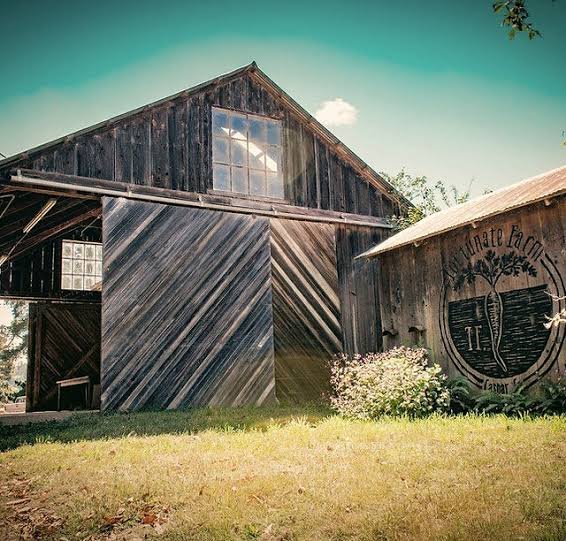Introduction:
Imagine a farm where the land isn’t just used, but nurtured. A place where every vegetable grown plays a role in healing the soil and strengthening the community. Welcome to Fortunate Farm, a unique, regenerative farm that is more than just a producer of fresh, organic produce—it’s a movement toward sustainability.
Whether you’re a food lover, an eco-conscious individual, or someone who simply enjoys the idea of locally grown food, Fortunate Farm is an inspiring example of how farming can be good for both people and the planet.
In this blog, we’ll explore what makes Fortunate Farm special, its commitment to regenerative agriculture, and why it’s a must-know name for anyone passionate about sustainable food.
What is Fortunate Farm?
Fortunate Farm is an organic farm dedicated to regenerative agriculture, meaning it doesn’t just sustain the land—it improves it. Unlike conventional farming, which often depletes soil nutrients and harms biodiversity, Fortunate Farm works to restore soil health, promote ecological balance, and reduce carbon emissions.
The farm grows a variety of organic vegetables, flowers, and herbs, all while practicing eco-friendly farming techniques that help the environment instead of hurting it. It’s a shining example of how local farming can be both profitable and sustainable.
Sustainable Farming Practices at Fortunate Farm
One of the key elements that set Fortunate Farm apart is its dedication to sustainability. Here’s how they do it:
1. Regenerative Agriculture
Fortunate Farm follows regenerative agriculture principles, which means they focus on improving soil health through:
- Crop rotation: Reducing soil depletion and preventing pests naturally.
- Cover cropping: Planting certain crops to add nutrients back into the soil.
- No-till farming: Avoiding plowing to preserve soil structure and microbial life.
2. Organic and Chemical-Free Farming
The farm grows its produce without harmful pesticides, herbicides, or synthetic fertilizers. Instead, they rely on composting, natural fertilizers, and companion planting to manage pests and soil health.
3. Carbon Sequestration
Did you know farming can help fight climate change? Fortunate Farm employs techniques that pull carbon dioxide out of the atmosphere and store it in the soil, making it a carbon-negative operation.
4. Waste Reduction & Composting
Fortunate Farm works with local businesses to repurpose food waste into compost, enriching the soil while reducing landfill waste. This closed-loop system ensures that nothing goes to waste.
5. Water Conservation
By using drip irrigation and rainwater collection systems, Fortunate Farm significantly reduces water waste, ensuring crops get the water they need without excessive use.
The Connection Between Fortunate Farm and the Community
Farming isn’t just about growing food; it’s about growing relationships. Fortunate Farm is deeply committed to community engagement and food justice. Here’s how:
1. CSA Program (Community Supported Agriculture)
Locals can subscribe to a weekly box of fresh, organic produce. This system not only provides families with healthy, seasonal food but also supports the farm directly.
2. Educational Programs & Workshops
Fortunate Farm offers workshops on sustainable farming, composting, and home gardening, helping people learn how to grow their own food in an environmentally friendly way.
3. Farm-to-Table Partnerships
The farm supplies local restaurants and farmers’ markets with fresh, organic ingredients, ensuring that locally sourced food makes its way onto people’s plates.
4. Volunteer Opportunities
Community members are invited to get their hands dirty and learn about sustainable farming firsthand by volunteering on the farm.
Why Fortunate Farm Matters
With industrial agriculture dominating food production, small farms like Fortunate Farm are crucial. Here’s why:
- Healthier food: Without harmful chemicals, the produce is more nutritious and tastier.
- Stronger local economy: Money spent on local farms stays in the community.
- Better for the environment: Sustainable farming helps fight climate change.
- Food security: Small farms reduce reliance on mass-produced food shipped across the country.
Supporting Fortunate Farm means supporting a future where farming is both eco-friendly and economically sustainable.
How You Can Support Fortunate Farm
If you’re inspired by Fortunate Farm’s mission, here are ways you can support it: ✅ Join their CSA program – Get fresh veggies delivered weekly!
✅ Visit the farmers’ market – Buy direct from the farm.
✅ Attend a workshop – Learn sustainable gardening tips.
✅ Spread the word – Share this farm’s story with friends and family.
✅ Volunteer – Lend a hand and learn about regenerative agriculture firsthand.
Conclusion
Fortunate Farm is more than just a farm—it’s a beacon of sustainability, community, and climate-conscious agriculture. By focusing on regenerative farming, reducing carbon footprints, and engaging the local community, Fortunate Farm is proving that small farms can have a big impact.
If you’re looking for fresh, local, and eco-friendly food while supporting sustainable farming practices, Fortunate Farm is a name to remember.
FAQs About Fortunate Farm
1. What does Fortunate Farm grow?
Fortunate Farm grows a variety of organic vegetables, flowers, and herbs using regenerative farming practices.
2. Where is Fortunate Farm located?
The farm is located in [insert location if applicable], serving the local community through farmers’ markets, CSA programs, and partnerships.
3. Can I visit Fortunate Farm?
Yes! The farm welcomes visitors for workshops, tours, and volunteer opportunities.
4. What makes Fortunate Farm different from other farms?
Unlike conventional farms, Fortunate Farm prioritizes soil health, carbon sequestration, and community engagement, making it a leader in regenerative agriculture.
5. How can I buy produce from Fortunate Farm?
You can join their CSA program, visit them at a local farmers’ market, or find their produce in partner restaurants.

